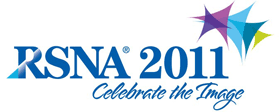
Abstract Archives of the RSNA, 2011
LL-INS-WE5A
The Negative Impact of Limiting Consecutive Nights of Night Float on Radiology Resident Performance
Scientific Informal (Poster) Presentations
Presented on November 30, 2011
Presented as part of LL-INS-WE: Informatics
Alexander T Ruutiainen MD, Presenter: Nothing to Disclose
Mary Helene Scanlon MD, Abstract Co-Author: Nothing to Disclose
Jason Neil Itri MD, PhD, Abstract Co-Author: Nothing to Disclose
Beginning July 1st, 2011, residents will be limited to no more than 6 consecutive nights of night float call without a 24-hour period free of clinical duties (day off). The purpose of this study was to evaluate the impact of limiting consecutive nights of night float on radiology resident major discrepancy rates in the interpretation of radiological studies on-call.
At our institution, night float call begins on Saturday and extends for 1 or 2 weeks during the second year of training (PGY-3). To comply with ACGME duty hour restrictions, residents scheduled for 2-week night float shifts are covered by another resident during the second Saturday (isolated Saturday, day 8 of shift). We used a web-based software application (Orion) to track resident major discrepancy rates during night float shifts by day of the week and compared resident major discrepancy rates for continuous Saturdays (day 1 of 1 or 2-week night float call shifts), isolated Saturdays (day 8 of 2-week night float shifts), Sundays and weekdays.
From January 1st 2010 through December 31st 2010, average resident major discrepancy rates (17 residents) were 1.3% on Saturdays (n=52), 0.8% on Sundays (n=52), and 0.9% on weekdays (n=261). The average resident major discrepancy rate for isolated Saturdays was 1.8% (n=25), whereas the average resident major discrepancy rate for continuous Saturdays was 0.8% (n=27). The difference in major discrepancy rates for isolated Saturdays compared to continuous Saturdays was statistically significant (p<0.03), as was the difference between isolated Saturdays and Sundays (p<0.05).
Radiology residents working a single Saturday night shift perform significantly worse than residents working the initial Saturday of 1 or 2-week night float shifts. Residents assigned to work an isolated Saturday night to comply with ACGME duty hour restrictions may not prepare for that call shift similarly to residents assigned to work 1 or 2-week night float shifts.
ACGME duty hour restrictions may have the unintended consequence of significantly increasing the number of major discrepancies in the interpretation of imaging studies by radiology residents on-call.
Ruutiainen, A,
Scanlon, M,
Itri, J,
The Negative Impact of Limiting Consecutive Nights of Night Float on Radiology Resident Performance. Radiological Society of North America 2011 Scientific Assembly and Annual Meeting, November 26 - December 2, 2011 ,Chicago IL.
http://archive.rsna.org/2011/11007646.html

